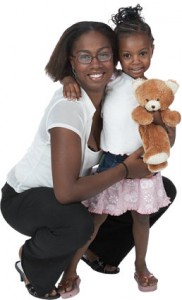All children sometimes break the rules. The difference between disruptive behavior disorder (DBD) and a kid just being a kid is the severity and frequency that these disruptive behaviors occur. A DBD is diagnosed from a persistent pattern of angry outbursts, arguments, and disobedience.
Children and teens with a DBD struggle with symptoms that interfere with their daily lives. This usually leads to them having conflicts with parents, teachers, authority figures, and other children. With the proper help from a marriage and family therapist in Chicago children with DBDs can be very successful in school and life and maintain healthy relationships with family and friends, but they need a lot of support and tools to make this happen.
So your child was diagnosed with disruptive behavior disorder (DBD), now what? First, relax and learn a few facts.
What does this mean?
- * DBDs are the most common mental health disorder among children.
- * 4% to 9% of all children from birth to 18 years old will be diagnosed with a DBD.
- * Environmental factors can effect how the child functions.
- * DBD are disorders that are only identified in children and adolescence.
What should you expect in treatment?
- * Parenting modification strategies Social and emotional skills training for children
- – Communication skills
- – Parenting skills
- – Conflict resolution skills
- – Anger management skills
- * Psychotherapy for the child and the family, such as one of our play therapists in Chicago
- * Teaming with a counselor in Chicago
- * If necessary, the addition of medication to the therapy plan
- * Find ways to maintain a positive relationship with your child.
- * Be consistent. Learn all you can about how to effectively manage your child’s behavior; find what works for you and stick to it.
- * Find parental support so you can handle your own emotions.
- * Get help!
* Try our affordable psychologists or psychiatrists in Chicago or one of our behavioral therapy specialists in Chicago and Mount and the surrounding area including Mt. Prospect and Des Plaines, Arlington Heights, Schaumburg, Barrington, Hinsdale, Skokie, Lincolnwood, Park Ridge, and Wilmette.


